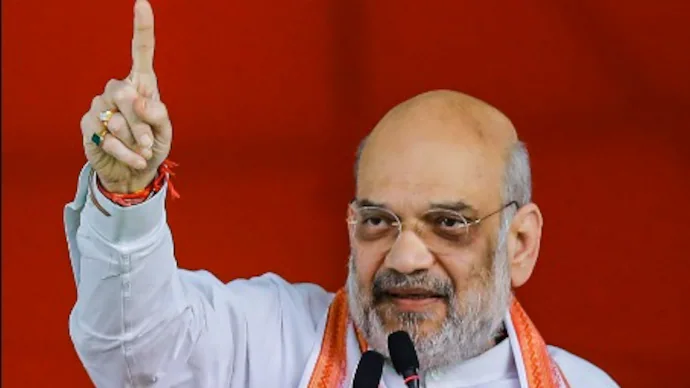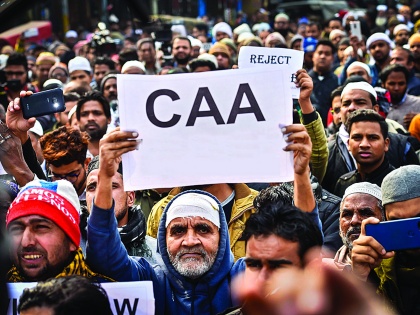In a significant move, Union Home Minister Amit Shah unveiled the Centre’s strategy to revoke the contentious Armed Forces (Special Powers) Act (AFSPA) and initiate a gradual reduction of troops in Jammu and Kashmir. This announcement, made during an interview with Jammu and Kashmir-based Gulistan News, reflects a pivotal shift in the government’s approach towards the region’s security dynamics.
Ahead of the looming Lok Sabha elections, Shah affirmed the government’s commitment to entrust law enforcement responsibilities solely to the Jammu and Kashmir Police. Emphasizing the importance of empowering the local police force, Shah stated, “We have plans to pull back troops and leave law and order to the Jammu and Kashmir Police alone. We are strengthening the police, who are at the forefront during the encounter.” He further indicated that the proposal to revoke the AFSPA is under serious consideration, citing the normalization of the prevailing situation.
The envisaged troop reduction will occur gradually over a span of seven years, with personnel transitioning from active duty to barracks, as outlined by Shah. The AFSPA, a legislation granting special powers to armed forces operating in disturbed areas, has long been a subject of controversy due to concerns regarding human rights violations.
This strategic maneuver aligns with the Modi government’s broader agenda, which seeks to highlight key accomplishments over the past five years, particularly in the realm of national security. Notably, the abrogation of Article 370 in Jammu and Kashmir stands as a cornerstone achievement, contributing to a significant decline in terrorist activities within the region.
Addressing the ramifications of Article 370’s abrogation, Shah asserted that it had thwarted the radicalization of youth, paving the way for a trajectory of peace and stability in the region. However, skepticism looms among political circles regarding the timing and sincerity of the proposed AFSPA revocation.
Former Jammu and Kashmir ministers cautiously welcomed the initiative while expressing apprehensions that it could merely be a pre-election pledge by the ruling BJP. Omar Abdullah, Vice President of the National Conference, remarked that the promise to revoke AFSPA appeared timed with the electoral cycle. Similarly, Mehbooba Mufti, President of the People’s Democratic Party (PDP), urged vigilance against hollow assurances, drawing parallels with previous unfulfilled commitments.
The upcoming Lok Sabha elections, scheduled in seven phases commencing from April 19, will serve as a litmus test for the government’s policies, particularly in regions like Jammu and Kashmir. With voting across five phases in the Union Territory, the outcome will be closely watched as a barometer of public sentiment and the efficacy of proposed security measures.
In conclusion, the Centre’s proposed actions regarding the AFSPA and troop reduction underscore a recalibration of its strategy in Jammu and Kashmir, emphasizing a shift towards empowering local governance and enhancing security apparatus. However, amidst political skepticism and electoral imperatives, the true impact of these measures remains to be seen, shaping the contours of regional dynamics and national security discourse.











